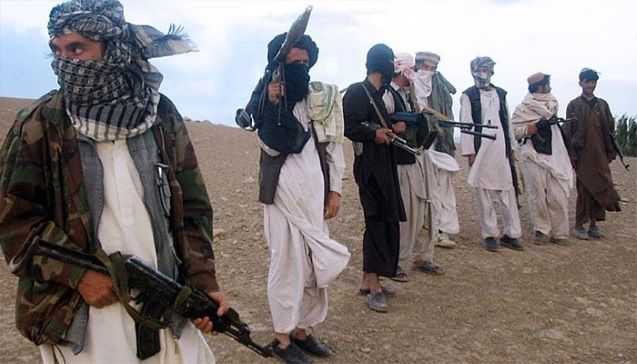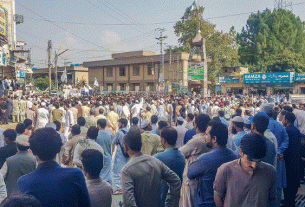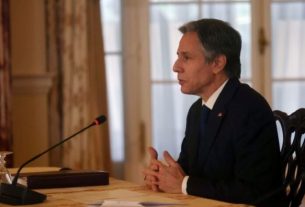By Nawazish Ali
“Extremism can flourish only in an environment where basic governmental social responsibility for the welfare of the people is neglected.”
Political dictatorship and social hopelessness create the desperation that always fuels religious extremism. The rise of religious fanaticism in Pakistan can be traced back to the brand of Islamisation that emerged during the Afghan war of the 1970s and 1980s. The decade that followed produced a new generation of extremists in thousands of religious madrasas, many of whom were associated with groups like Al-Qaeda and its affiliates. This phenomenon was further fueled by post-Cold War events and the tumultuous circumstances during the Global War on Terror (GWOT). Pakistan’s decision to join GWOT as a coalition partner post 9/11 provoked violent extremists to expand their anti-state terrorist activities. In the post ‘Arab Spring’ period many Pakistani extremists and militant groups established links with a variety of newly emerged foreign terrorist organisations, including the Islamic State of Iraq and Syria (ISIS).
Men never do evil so completely and cheerfully as when they do it from religious conviction. There are various contributing factors, but one of the most significant is the role of religious leaders and their institutions. These leaders wield an enormous amount of influence in the country, and unfortunately, many extremist groups receive support from clerics who use their sermons to propagate a narrow, intolerant and chauvinistic version of Islam. It is shocking to think that religious institutions also play a role in promoting sectarianism, with many mosques and madrasas segregating students based on their sect and actively promoting sectarian hatred.
By addressing the root causes of extremism, we can create a more peaceful and stable world.
_____________
The societal differences, ranging from disagreements among different sects of Islam to conflicts between Muslims and non-Muslims, can easily be exploited by various elements for their selfish designs. The real question is, who is behind these clashes and what are their objectives? Power struggles between internal and external forces can exacerbate these tussles, creating a fertile ground for militant groups to use religious extremism as a tool for their political objectives. But that is not all. One of the most significant factors contributing to religious fanaticism in Pakistan is the lack of education among the population. Education is a critical tool for promoting religious tolerance, but Pakistan has a high rate of illiteracy, and many children receive only a basic education that does not promote critical thinking. This leaves vulnerable communities open to extremist groups who spread their ideology with devastating consequences.
The sad reality is that incidents of religious intolerance and violence are all too common in Pakistan. These events are often the result of vigilante justice or mob action, sparked by accusations of blasphemy or other religious offences. It’s heartbreaking to know that members of religious minorities are frequently subjected to mob violence or extrajudicial killings, with little or no intervention by law enforcement. Perpetrators of these heinous acts often believe they are acting in the name of Islam, using religious fanaticism as a justification for their actions.
While the financially motivated Arab states that historically spread radical ‘Salafism’ worldwide are now embracing moderation. Contrarily, Pakistan appears to be wholly invested in being the bastion of fundamentalism and plunging further into jihadism. With Saudi Arabia expecting Pakistan to toe its line of significant geopolitical moves, such as the normalisation of ties with Israel, it can ill-afford Islamabad to be bogged down by radical Islamist mobs, which are also expressing condemnations of Saudi Arabia’s ostensible liberalisation.
The United States, despite its withdrawal from the region, would not desire a Pakistan that spirals further into radical Islamist disintegration at a time when the Western powers are still mulling the fate of the jihadi takeover in Afghanistan. The Saudi and US petrodollars that helped sustain Pakistan’s jihadi superstructure in the past are no longer on the table. Global institutions, including the European Parliament, are mulling sanctions over Pakistan’s human rights abuses. Self-sustenance for the country is only possible through a purge of radical Islam at all tiers, from the constitution to governance to the security policy.
Let us not forget that by addressing the root causes of extremism, we can create a more peaceful and stable world. Religious extremism poses a significant threat to national security and must be addressed through a comprehensive and multi-faceted approach that includes education, economic development, and effective law enforcement. This means improving the quality of education, promoting religious tolerance through civil society, and taking greater government action to counter extremist groups and promote a pluralistic vision of Pakistan. Together, we can overcome this challenge and build a brighter future for ourselves and the generations to come.
The Pakistani government has been making strides in combating religious fanaticism, but we must acknowledge that progress has been slow. Despite the government’s efforts to counter extremist ideology, they have been hindered by a lack of political will, corruption, and inefficiency within government institutions. It is disheartening to see that the government has been criticised for taking a selective approach to countering extremism, focusing primarily on groups that pose a security threat rather than those that promote a narrow interpretation of Islam.
“Political dictatorship and social hopelessness create the desperation that fuels religious extremism”.
(Benazir Bhutto)
Courtesy Daily Times
The writer is a retired Pakistan Army officer.





